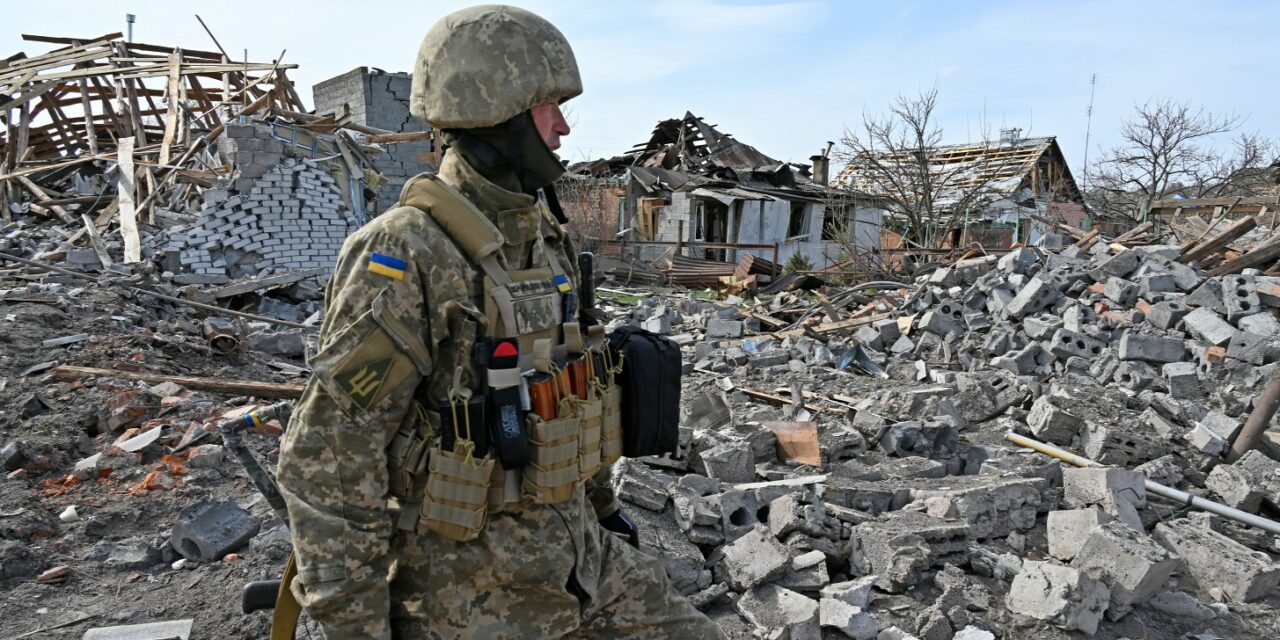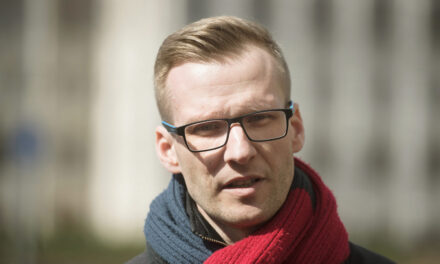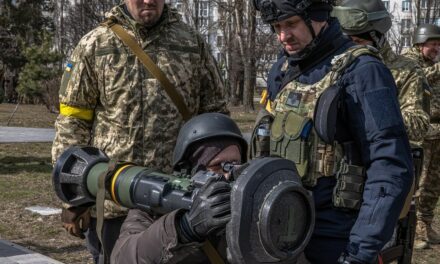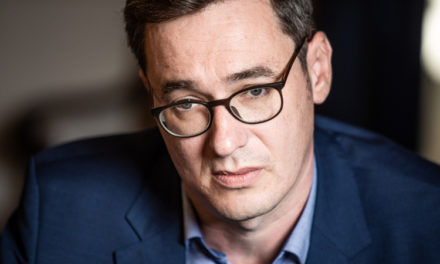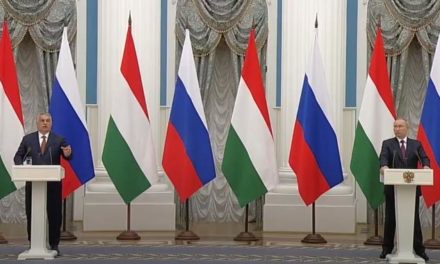We are approaching the third year of the war: six million Ukrainians currently live in the European Union, and they are increasingly integrated into the society of the host countries. They study, work, live, except, of course, the "Monaco flagship" of the rich. All this is good for the European economy - but what about Ukraine?
If we were to ask an imaginary archetypal European how he feels about Ukrainian refugees, we would probably not get a straight answer. He would rather throw the question back: who are we thinking of, the economist woman with two children from Kharkiv, who cleans in the neighboring kindergarten in two shifts with dignity due to the rejection of her degree, the downtrodden commuting to Prague for help, the male "refugees" of military age driving sports cars in Monte-Carlo?
This refugee crisis is the worst in Europe since the Second World War
According to the UN High Commissioner for Refugees, the refugee crisis starting at the end of February 2022 is the most serious in Europe since the Second World War. According to the latest estimate of the world organization, the number of Ukrainian citizens fleeing to EU countries is 5.9 million, which means stagnation compared to last January. Approaching the end of the second year of the war, it seems that the EU countries will have to count on the presence of Ukrainian refugees in the long term - and it seems that they also count on their work. Anyone who can.
The European Union acted surprisingly quickly: already on March 4, 2022, it activated the "transitional protection" directive, adopted twenty years earlier but never applied, which gave those affected rights to access to housing, employment, education and social care . Temporary protection has since been extended until 2025, and so far 4.2 million refugees have benefited from it, according to the European Council's calculations.
From the first reception of refugees, this imposed a lot of tasks and costs on the member states. Germany is also the leader in this with 28 billion euros, Poland allocated 15.4 billion and made all care for refugees free of charge, the Czech Republic is the third in line in the EU with spending almost 4 billion euros.
Now these amounts can be expected to drop. In connection with Germany, which has an unbalanced budget, to put it mildly, and Poland, which is about to change its government, cost reductions were talked about as early as September, and the Czechs did so. There was also some tension there because of the Roma coming from Ukraine, who, according to the right, abused the support by moving in and out of the country. It is also true that, according to Eurostat data, the flow of refugees is decreasing in the EU, and in Switzerland and Norway the number of people receiving temporary protection has decreased from the peak period of 200 thousand to 80 thousand.
The right to housing and employment provided by the temporary protection made it possible for the refugees to enter the labor market of the host country, and they took advantage of this opportunity. Last year's research entitled Labor Supply Shocks and Capital Accumulation - Short and Long-Term Effects of the European Refugee Crisis dissected how the smart use of millions of Ukrainian refugees of working age and with higher than average education in the labor market can significantly boost the economy of the host countries. The European Central Bank, on the other hand, explained in its analysis that although the appearance of people capable of working can alleviate the labor shortage, especially in the euro area, the acceptance of qualifications and the acquisition of language skills will not necessarily be an easy process. In the longer term, the institution sees an employment rate of between 25 and 55 percent among them as realistic. As for practice: according to a survey by the German social research institute Infas, Ukrainian refugees have made significant progress in learning the German language, three-quarters of them have completed or participated in a language course. However, their employment rate is low for the time being, although it is constantly increasing, especially for graduates - they account for 71 percent of the employed.
If the war drags on, five million Ukrainians may never return home
Based on the above, it is understandable that not all member states reacted positively when Kiev announced the extradition of conscripted men between the ages of 25 and 60 who had fled to the West last September. For example, Germany, Austria and the Czech Republic, which benefit greatly from their workforce, immediately indicated that this was out of the question. On behalf of our country, Deputy Prime Minister Zsolt Semjén - by definition, in defense of the Hungarian men of Transcarpathia - also declared that he would not extradite anyone to Ukraine. On the other hand, due to their different historical experiences, the Poles were ready for this, and the Estonians also indicated their willingness to Kiev. Another question is who will prevent Ukrainians who move freely within the EU from continuing their lives in a member state that refuses to extradite them.
There is some tension
Of course, the perception of Ukrainian refugees varies from country to country, and has changed somewhat in the past two years. The Poles, for example, did not experience a culture shock with the neighboring related people, the 3.5 million Ukrainians did not disturb much, not even with the fact that Poland suddenly became the fourth largest refugee receiving country in the world. However, fatigue has increased among people: according to a poll of the CBOS institute last May, the percentage of those who support the reception of refugees fell from 83 to a still high 73 percent. In the meantime, as the conflict dragged on, the number of refugees in Poland dwindled to 1 million, because many moved to the richer Germany - there they became 1.3 million.
In Germany, regardless of their usefulness on the labor market, their social support is particularly high: according to last year's Infratest survey, 91 percent of Germans agreed with accepting Ukrainian refugees. On the other hand, problems arose with regard to accommodation: in autumn, the Berlin Asylum Office considered it difficult to accommodate last year's 10,000 asylum seekers, even though more are still arriving.
If you're already tight on space: Due to the housing crisis in Ireland, the situation between refugees and the island's population is more acute. In the midst of the national housing shortage, many Irish people have the impression that migrants and refugees, be they Africans, Middle Easterners or even Ukrainians, have easier access to housing than they do. According to a relatively recent survey by Newstalk, 48 percent of residents already believe that Ireland is accepting too many Ukrainian refugees, while the modest majority of 52 percent are against further acceptance.
Champagne and caviar
The above applies to the so-called average Ukrainian: one who fits in, works, studies, in short lives more or less the same life as the local population. According to joint research by the EWL Group, which specializes in the employment of foreigners, and the University of Warsaw, Ukrainians are better integrated in Germany than Poles. Thanks to the small cultural difference and the great willingness to integrate, coexistence with the Ukrainians is relatively frictionless, that is, it is not their personality, but at most their number that catches the eye of some locals.
On the other hand, the perception of Ukrainian refugees can be severely damaged by the top ten thousand Ukrainians, especially the oligarchs and their families, who settle in elite vacation spots and often behave in a ragtag manner. It's another matter that the average Ukrainians don't like them either: at home, men of military age who flee to the West with the help of money and influence from general conscription are mocked as Monaco battalions. It was not by chance that one of our informants used the term Robin Hood principle with bitter humor in connection with conscription, that is, the conscripts are taken from the rich and distributed among the poor.
The Ukrainska Pravda portal, which functions as Kiev's mouthpiece, exposed dozens of such figures, and proceedings were initiated against 84 of them back home, typically by freezing their assets or restricting their free movement. The most distasteful part of the "Monaco Battalion" is that it is often made up of people from settlements, often with political functions, which were under Russian occupation or where fierce fighting took place in their area. It is also clear that the rich Ukrainians in the West are by no means living a hidden lifestyle, Ukrainska Pravda found them primarily based on their luxury cars with domestic license plates. Their favorite car brands are Aston Martin, Bugatti and Mercedes-Benz, and neither of the latter are "field" models, for example, the paper writes about a HUF 110 million version. Footage was taken on a yacht, in a ski resort, in Monte-Carlo and on the French Riviera. Of course, all of this is in stark contrast to the standard of living of a one-time Ukrainian refugee, and even to those living at home near the front. There were times when the honor of the Ukrainians ran out, as far as solidarity was concerned: Switzerland announced after a while, for example, that refugees with luxury cars - those driving cars more expensive than HUF 15 million - are not entitled to increased social assistance.
There is only one at home
The described processes cover painful losses from the Ukrainian side. Even now, half a million conscripted men are missing from the country, which worsens the chances on the battlefield, it is no coincidence that Kiev is trying to call the men home.
However, the current state and the forecasts also project a demographic catastrophe not seen since the Holodomor. As we presented in our previous article, the country's population of 52 million in 1991 was estimated at only 37 million even before the war, and then came the Russian invasion, which caused huge human losses to our eastern neighbor both on the battlefield and in the hinterland. The departure of the highly mobile and young workforce can be particularly painful.
It is not only based on anecdotal information that we believe that anyone who has once received a good job opportunity in a peaceful, economically prosperous country will find it difficult to settle down, especially if their child goes to school in the host country. 37 percent of Ukrainians fleeing to Germany in December 2022, and 44 percent last year, envisioned their future in Germany for years or even forever. And a survey by the American-based Wilson Center indicated that if the war drags on, 5 million Ukrainians will probably never return home.
Ukraine obviously suffers from serious economic problems: the infrastructure is in ruins, wages here are the lowest in Europe (the average salary is 360 euros, and the German aid for singles is 570 euros), living conditions are bad. The country is also characterized by a crisis of trust in institutions. According to recent research by the Ukrainian Kyiv International Institute of Sociology, the population of the country who stayed at home only trusts two actors: the army and the president, 96 percent in the former and 62 percent in the latter. In a single year, the percentage of those who trusted the legislature decreased from 35 to 15 percent, and those who distrusted it increased from 34 to 61 percent. Only half as many trust the government as in December 2022: 26 percent instead of 52. Whether President Volodymyr Zelenskyy is in charge of rebuilding Ukraine, or he will have to cut his ax into hard wood due to lack of trust and, above all, busy hands.
Featured image: AFP / Sergey Bobok

